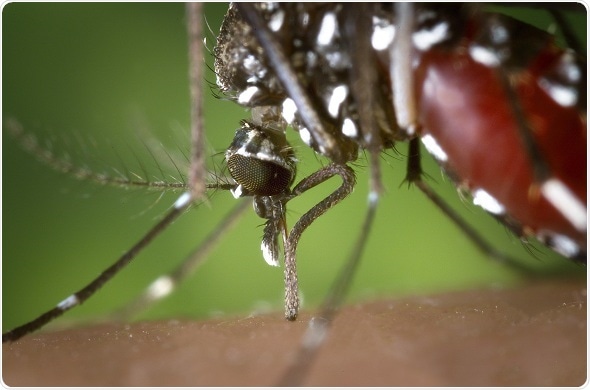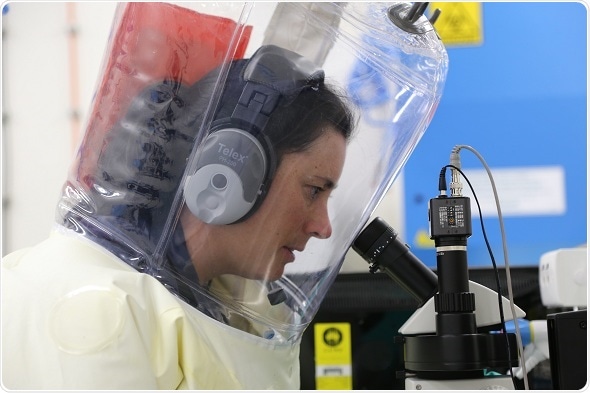A new project in Northern Australia will focus on how Australia can better protect and rapidly respond to the growing global risk of emergent infectious diseases which can spread to humans through animals and insects.

The Aedes albopictus, or Asian Tiger mosquito
Increased surveillance of wildlife, improved disease monitoring, and more extensive field-based sampling are some of the initiatives being targeted by the new project, which is a collaboration between James Cook University (JCU) and CSIRO, Australia’s national science agency.
Northern Australia is at increased risk of infectious diseases found in South East Asia because of its close proximity to Asia, potentially providing a gateway to the rest of Australia.
Australia’s susceptibility is also increased because of global mobility, growing trade, increased urbanisation leading to human encroachment into wildlife habitats, expanding agricultural development including the rise of peri-urban farming, as well as environmental and land use changes.

A CSIRO scientist at the Australian Animal Health Laboratory (AAHL)
Minister for Industry, Science and Technology Karen Andrews welcomed the collaboration between two of Australia’s leading biosecurity research organizations to protect Australia from the growing threat of zoonotic diseases.
“This collaboration will create an integrated northern and southern research capability that will be pivotal in helping to strengthen Australia’s preparedness and response to emerging infectious diseases,” Minister Andrews said.
Dean of the College, Professor Maxine Whittaker, said it is estimated that 75 per cent of infectious diseases in humans originate in animals, and the frequency of such transmissions has been steadily increasing over time.
“The global annual incidence of zoonotic infectious disease outbreaks has increased by more than 300 per cent since the 1980s,” Professor Whittaker said.
“This worrying trend is now seen as a global and national health security risk, with recent global outbreaks include Ebola virus disease, highly pathogenic avian influenza (bird flu), and severe acute respiratory syndrome (SARS).”
Bringing together world-class capabilities from the north and south of Australia, the program will connect JCU’s College of Public Health, Medicinal and Veterinary Sciences in Townsville with two CSIRO facilities: the Australian Tropical Sciences and Innovation Precinct (ATSIP) in Townsville and the Australian Animal Health Laboratory (AAHL) in Geelong.
JCU and CSIRO will share knowledge and training opportunities to foster an agile team of experts able to respond rapidly to emerging infectious disease events in the future.
The CSIRO Board met in Townsville this week and welcomed the announcement. CSIRO Chair, David Thodey AO, said CSIRO’s wide-ranging expertise, broad geographical footprint, and commitment to collaboration can connect knowledge and research capability from Northern Australia to Victoria for the benefit of the whole country.
We’re well-known in the Townsville community for our partnerships to protect and restore the Great Barrier Reef, but the challenge to help safeguard Australia from biosecurity threats is equally important.
We can’t solve this biosecurity challenge alone, that‘s why collaboration with our long-standing partner, James Cook University, is crucial in strengthening and integrating Australia’s national biosecurity response capabilities.
Our Townsville team aren’t just experts in biosecurity and environmental science, they’re Townsville’s front door to the whole of the national science agency, from energy to space, manufacturing to agriculture, and many others – whatever challenges Australians are facing, we’re here to help them solve.”
CSIRO Chair, David Thodey AO